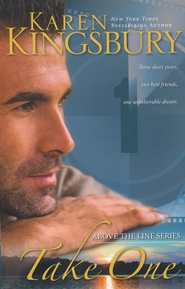Today I share with you the conclusion of my two-part series on making our Christian fiction realistic. You can find Part 1 here. I’d also like to wish my American readers a happy 4th of July! I hope you enjoy your day!
Last week, I partially covered the problems we find in many Christian books, which are too often unrealistic because we’re afraid of including “mature content.” I then delved into reasons for including violence, profanity, etc. But I’m not just gung-ho for including these things without any caution. I have genuine concerns that surfaced when I read the article mentioned in my previous post.
- We expect Christian fiction to be clean. One of the reasons I read predominantly Christian stories is that I don’t want to be surprised by foul language or a sex scene. Christian books are generally clean, and, as I reader, I highly appreciate that. My forays into secular fiction usually end with me putting the book down mid-read, frustrated because I liked the story but am now stuck with things in my head that I didn’t want. I don’t have to worry about that in Christian fiction. There must be other readers out there like me, and, for us, the idea that Christian fiction should be edging into PG-13 and/or R-rated territory is worrying.
- “Mature content” can poison your mind. The Bible clearly tells us to think on pure and true things [Philippians 4:8]. It’s very difficult to do that when you’ve got something impure stuck in your mind. Drugs, nudity/sex, profanity, and violence are all dangerous things to put in your mind. Ultimately, your level of tolerance is between you and God (and your parents, depending on your age), but it’s still something to consider for Christian authors. What are you putting into your mind as you write this story? And what will you be placing in your readers’ minds?
![Photo courtesy of Idea go [backslash]FreeDigitalPhotos.net Photo courtesy of Idea go [backslash]FreeDigitalPhotos.net](http://lh5.ggpht.com/-FOJ02wPa5BA/U7b5g_x3SqI/AAAAAAAAANo/BsKUlk4YuG8/Photo-courtesy-of-Idea-go-backslashF.jpg?imgmax=800) |
| Image courtesy of Idea go/FreeDigitalPhotos.net |
- Focusing on bad things makes it much easier to glorify them. Whenever you put time, effort and detail into something, it suggests to a viewer/reader of that something that it’s important, even valuable. As writers, we hope that the time we spend showing ideals such as courage, honesty, and the like will rub them onto our readers. But how often do we think about that fact that the not-so-savory aspects of our stories may rub off on them, too? In fact, that’s more likely. People pick up on negatives far more easily than they do positives, because the bad things appeal to our sin nature. So, in our efforts to be perfectly realistic, maybe we don’t shy away from showing sin. And, of course, we don’t intend to glorify it. Yet the potential is there for it to be appealing anyway. My caution in being more graphic is that you don’t glorify what you’re showing. Draw your lines very clearly. And remember that you’re trying to show redemption, grace, and beauty, not sin in all it’s “glory.”
- Less is more. Ultimately, I’ve discovered that readers are intelligent enough to figure out what’s happening without you describing every little thing about it. You actually insult their intelligence when you point out everything. I’ve heard people say that the Bible is full of “mature content,” and, yes, it is. There is a reason that I never knew certain Bible stories until I moved into high school. Murder, rape, deception, etc. abound, especially in the Old Testament. God didn’t ignore the fact that bad things happen. Yet I’ve found that some of those stories don’t include a lot of close-up detail.
Amnon’s rape of his sister Tamar? “But he refused to listen to her, and since he was stronger than she, he raped her.”
Cain’s murder of his brother Abel? “Now Cain said to his brother Abel, ‘Let’s go out to the field.’ While they were in the field, Cain attacked his brother Abel and killed him.”
David and Bathsheba? “She came to him, and he slept with her. (Now she was purifying herself from her monthly uncleanness.) Then she went back home.” And David’s subsequent murder of Uriah? “When the men of the city came out and fought against Joab, some of the men in David’s army fell; moreover, Uriah the Hittite died.”
As I said, you can understand exactly what’s happening without every detail. Now, there is a lot of telling vs. showing in the Bible, so it’s not a perfect example. But I used it to counteract the theory that the content in the Bible authorizes us to fill our stories with mature content. If anything, Bible stories actually show us the benefit of keeping our descriptions minimal.
I’m far from having all the answers. But I believe this a very real issue for writers and readers alike. How do we make our stories real without gratifying our sin natures? How do we accurately show light without damaging ourselves and our readers with darkness? Every person’s answer will look a little bit different, and, ultimately, it’s between you and God. But I’d love to hear your thoughts on the topic. Where do you draw the line on “mature content”? What kind of content enhances the story and what kind distracts you from it? If you’d like to read some other thoughts on this, read the comments on this article - Marcher Lord Press and the Hinterlands Imprint. I found some of the opinions quite fascinating, and I’d like to hear what you think of them.
In closing, I’d like to mention a couple of series off the top of my head that I think do a good job of balancing reality and discretion. If you have others, by all means, tell me in the comments!
- Mark of the Lion trilogy by Francine Rivers – You may dispute
 me on this, and it is quite intense. I always recommend it with caution. But I find this trilogy to be rich with realism; every time I read it, I’m sucked into the world of Ancient Rome, which wasn’t a pretty place. There’s a lot of heavy content in this series, but I never felt like Francine Rivers was glorifying any of it. She showed the consequences of sin without being judgy. And she showed the opposites of those sins with equal realism. In addition, she manages to do it with little or no profanity, something I highly appreciate. Easily one of my favorite series ever.
me on this, and it is quite intense. I always recommend it with caution. But I find this trilogy to be rich with realism; every time I read it, I’m sucked into the world of Ancient Rome, which wasn’t a pretty place. There’s a lot of heavy content in this series, but I never felt like Francine Rivers was glorifying any of it. She showed the consequences of sin without being judgy. And she showed the opposites of those sins with equal realism. In addition, she manages to do it with little or no profanity, something I highly appreciate. Easily one of my favorite series ever.  Above the Line series by Karen Kingsbury – I read this recently and fell in love with Karen Kingsbury’s stories because of it. The four-book series deals with some serious issues, everything from temptations on a movie set to teenage pregnancy, but they’re handled in a beautiful, grace-filled way.
Above the Line series by Karen Kingsbury – I read this recently and fell in love with Karen Kingsbury’s stories because of it. The four-book series deals with some serious issues, everything from temptations on a movie set to teenage pregnancy, but they’re handled in a beautiful, grace-filled way.
"How do we make our stories real without gratifying our sin natures? How do we accurately show light without damaging ourselves and our readers with darkness?"
ReplyDeleteoh wow. what a wonderfully written, well executed and thoughtful post. realistic fiction and the somewhat lack of it in a lot of inspiration books now days is actually something i have been pondering for a long while. i cannot tell you how thankful i am for writing these two posts. you explained things so well and helped me see a bit of fault in my lines of thinking on this subject.
i sometimes find myself bored with a lot of christian fiction today, especial if it's historical. it almost seems like the same ideas go around and around, the bad guy's not really that band and the good guy is too good and the female lead is spunky and exciting things happen, but its just. not. real.
i think the 'christian' genre of books do very well today because, like you said, i don't want to get into a good story and have all this filthy language and intimate scenes going around in my head.
thanks again for writing this, it's such a great topic.
-Abigail
I'm so glad you enjoyed it, Abigail! Thanks for commenting!
DeleteIf you don't mind me asking, what "fault" did you find in your line of thinking?
No i dont mind. I had sort of come to the conclusion to never try to dum down or rosy up circumstances just because it is a christian story. People and real life is scary and terrible. I understand that some folks read just to be intertained, and i love hilarious and silly stories, but if you're telling a more serious tale than why not make it sound like real life? But then you showed thise passages from scripture and that really covicted me. No, the Lord didnt leave that out, He just didnt elaborate. Like you said, our human minds are smart enough to know whats going on without going into dark and graphic detail.
DeleteNot that i agree with sex scenes or cursing in every sentance, but not missleading the reader.
I guess in the end, what i need to be striving and praying for is balance.
-Abigail
Thank you so much for sharing, Abigail! I'm glad I could be an instrument of help to you! :) It is such a hard balance to achieve, but I fully believe we can be realistic without going into every detail. Be true to the story God is calling you to tell, and He'll guide you in how to tell it. :)
Delete